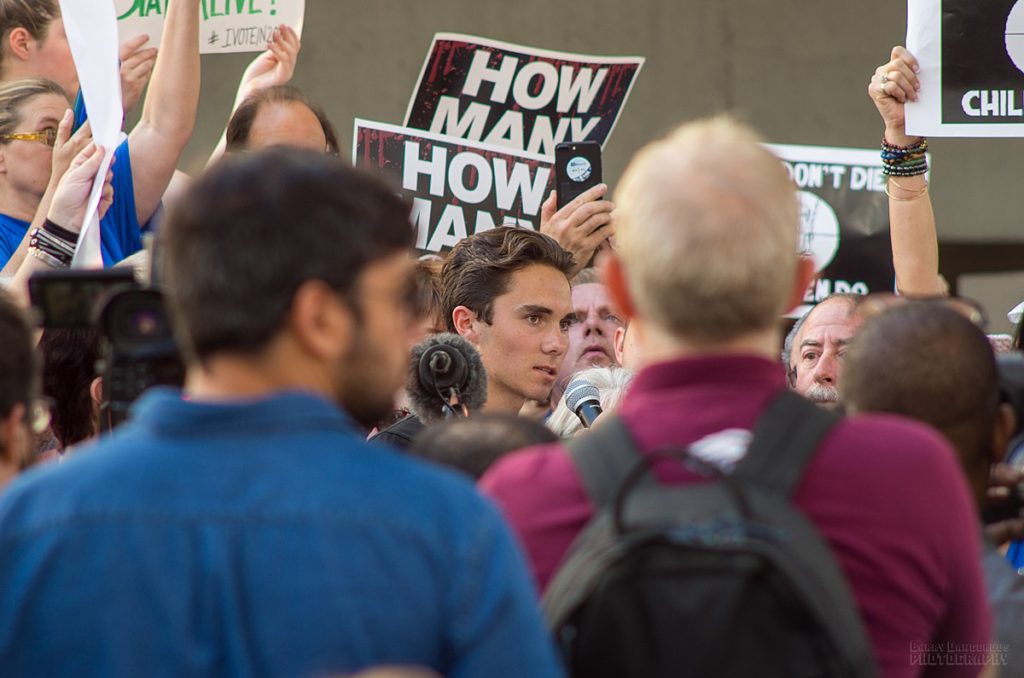David Hogg, a Marjory Stoneman Douglas High School shooting survivor known for his activism concerning gun control, revealed two weeks ago that he was rejected by four colleges in the University of California school system; soon after, television and radio show host Laura Ingraham mocked him on Twitter for his failure to get accepted into a college. She consequently received a flood of online backlash.
David Hogg Rejected By Four Colleges To Which He Applied and whines about it. (Dinged by UCLA with a 4.1 GPA…totally predictable given acceptance rates.) https://t.co/wflA4hWHXY
— Laura Ingraham (@IngrahamAngle) March 28, 2018
Ingraham did regret her tweet, later telling Hogg that, “any student should be proud of a 4.2 GPA” and apologizing for the hurt that her tweet caused him and the victims of Parkland. However, this is not the first time that Ingraham has attacked the Parkland survivors and student activists; several weeks ago, Ingraham sharply criticized students who participated in the school walkouts that occurred to support stricter gun control measures in wake of the Stoneman Douglas shooting.
Despite the fact that her views and beliefs concerning gun control may not match up with those of Hogg and his fellow activists, voicing her opposition to them by pointing out Hogg’s lack of success in the college admissions process was immoral of her. Gleefully insulting and humiliating someone (especially someone who is still recovering as a survivor of a massive tragedy) and constantly picking at their personal flaws is a form of bullying, and it should not be tolerated. Furthermore, it was immature of her—not only as an adult, but as a mother of three children—to mistreat a teenager and embarrass him in front of the world. Any discussion about gun control is supposed to be centered around just the issue itself—certain aspects of the personal lives of the Parkland survivors themselves, such as their college applications, are typically left out of the conversation.
Furthermore, a lack of success in the college admissions process (despite their record of achievement) does not make anyone an embarrassment of any kind. Colleges are not perfect at judging who applicants truly are as or how likely they are to succeed in the future. Therefore, getting rejected from multiple colleges doesn’t say anything about one’s potential to make an impact or change the world. The most influential people aren’t always those who can sit down at a desk, study for hours, and achieve the grades or test scores needed to be admitted into college; they aren’t necessarily people who can always meet a deadline or exceed a benchmark to impress a teacher or admissions committee. They are people who are resilient and do not give up easily, who are brave enough to fight for what they believe in, who have a voice and drive that echoes. Student activists like Hogg are motivated by intentions other than to prove themselves and their worth to people—whether it’s a faceless admissions officer or someone criticizing them on social media.
Humiliating a student on social media for their college rejections is immoral and hurtful, and it also invites the wrong perspective on the role of college admissions in determining someone’s worth or potential. Therefore, when people like Ingraham actively try to attack the personal lives of the Parkland survivors, they should be held accountable.
Featured image citation: “David Hogg speaking in Fort Lauderdale” by Barry Stock on Wikimedia Commons is licensed under CC BY 2.0. No changes were made to the original image. Use of the photo does not indicate photographer endorsement of this article. Copyright license can be seen here.






